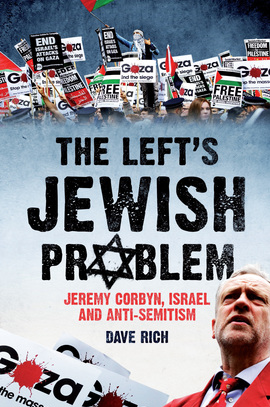Our sister site UK Media Watch has a very interesting interview with the CST’s Dave Rich – author of the new and very timely book ‘The Left’s Jewish Problem’.
UKMW: In the first chapter of your book, ‘When the Left Stopped Loving Israel’, you argued that the rise of anti-imperialism and anti-colonialism as the defining ideologies of the radical left influenced activists to see the Israeli-Arab conflict through a different lens. Is it a fair reading of this chapter to say that, contrary to most theories, this left-wing intellectual tide began to turn before the Six Day War – that is, before Israel occupied one square centimeter of land?
Dave Rich: Yes, this is correct, although – and this is the key point – the radical left argument was, and remains, that Israel’s occupation of Palestinian land began in 1948 (or before), and 1967 was just an extension of that earlier ‘crime’. The Six Day War saw an outburst of anti-Zionism on the radical Left in several countries, but the political ideas fuelling that outburst were already visible in the decade prior to that war. In Britain, anti-colonialism had become a prominent liberal and left-wing cause during the 1950s as colonies gained independence, and the Suez Crisis exposed the shabby duplicity required to maintain Britain’s imperial interests. The idea that Israel was a legacy of Western colonialism, rather than a rejection of it as many leftists had believed in 1948, was increasingly heard in radical left-wing politics in the early 1960s. So when the Six Day War occurred it was, as one contemporary observer wrote, “the perfect example of the key event as orchestrator of a symphony which was ready to be played.” The war gave focus and energy to ideas that already existed: this is why the radical left-wing response in the years following 1967 was not limited to analysing that war and its consequences, but instead critiqued the circumstances of Israel’s creation and the ideology of Zionism itself. People began to see Israel as a settler state, comparable to South Africa and Rhodesia – all three of which were former British colonies, so the theory had particular purchase in Britain.
Read the whole interview here.
Related Articles:




